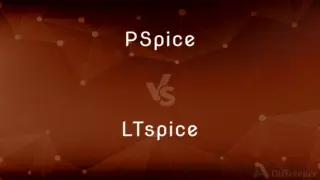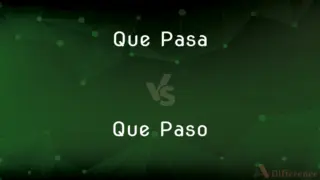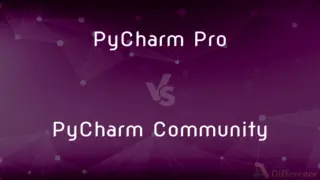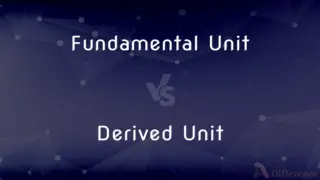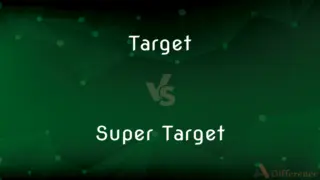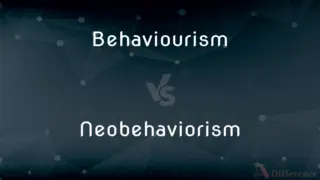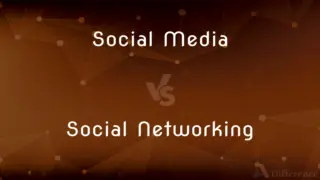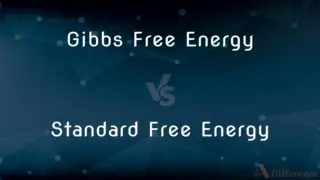Like vs. Unlike — What's the Difference?
By Urooj Arif & Maham Liaqat — Updated on April 6, 2024
"Like" expresses similarity or enjoyment, whereas "unlike" denotes difference or a lack of similarity between entities.
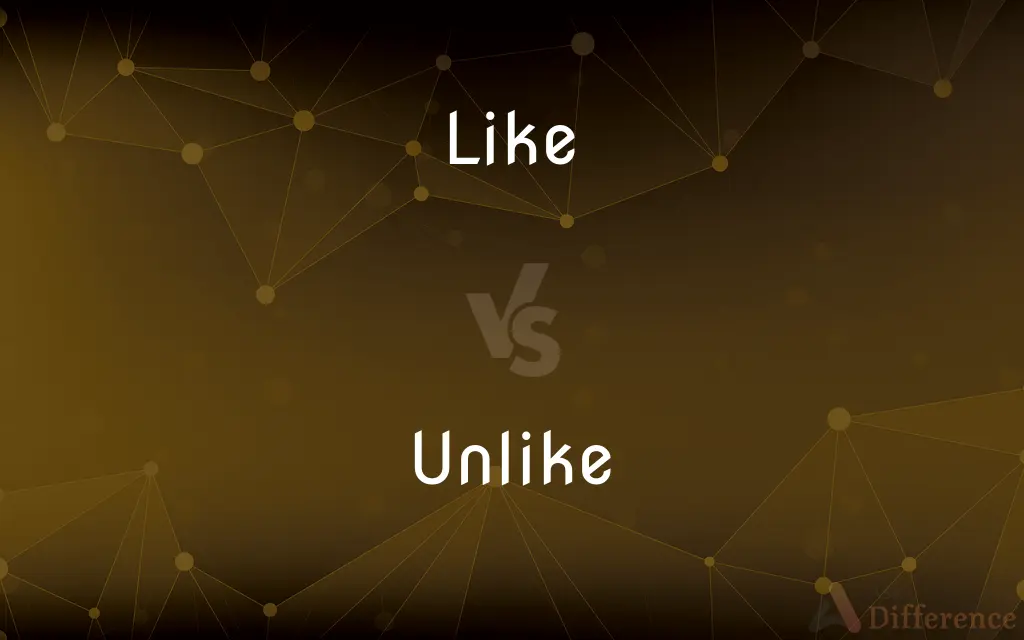
Difference Between Like and Unlike
Table of Contents
ADVERTISEMENT
Key Differences
"Like" is a versatile term used to indicate similarity or agreement between two or more entities, objects, or ideas, suggesting a level of comparability or shared characteristics. It also functions as a verb to express enjoyment or approval of something. "Unlike," on the other hand, is used to highlight differences, emphasizing the distinctive qualities or characteristics that set entities apart from each other.
In terms of usage, "like" can serve as a preposition, verb, or conjunction, showcasing its flexibility in language to cover comparisons, preferences, and hypothetical scenarios. "Unlike" primarily functions as a preposition, directly contrasting entities by focusing on their dissimilar aspects, making it crucial for drawing distinctions.
When discussing preferences or affinities, "like" conveys positive feelings towards a subject, person, or activity, indicating approval or fondness. In contrast, "unlike" does not directly relate to personal preferences but instead to contrasting qualities, often used to underline how one thing is not similar to another in specific aspects.
In the context of social media, "like" has evolved into a noun or verb, representing a form of digital approval or endorsement of content, further expanding its usage beyond traditional grammatical categories. "Unlike," while not commonly used in social media terminology in the same way, remains significant in linguistic contexts for making comparative analyses between different subjects.
The concept of liking something also implies a choice based on personal taste or interest, suggesting an elective affinity. "Unlike" serves to establish boundaries or distinctions in comparisons, emphasizing how personal tastes, characteristics, or attributes differ, highlighting the diversity and range of preferences or qualities among subjects.
ADVERTISEMENT
Comparison Chart
Function
Indicates similarity or enjoyment.
Denotes difference or a lack of similarity.
Usage
As a preposition, verb, or conjunction.
Primarily as a preposition.
Context
Comparisons, preferences, hypothetical scenarios.
Drawing distinctions, contrasting qualities.
Related to
Positive feelings, approval, fondness.
Distinctive qualities, setting apart entities.
Social Media
Used to denote approval or endorsement of content.
Not commonly used in the same digital context.
Compare with Definitions
Like
Similar to; having the same or nearly the same characteristics.
She has a singing voice like her mother's.
Unlike
Not applicable in the context of social media terminology.
Unlike is not a feature to show disapproval in most platforms.
Like
Expressing a hypothetical condition.
What would you do in a place like that?
Unlike
Different from; not similar to.
His cautious approach is unlike his brother's reckless behavior.
Like
Used to introduce an example or scenario.
In situations like these, it's best to be cautious.
Unlike
Used in contrasting comparisons.
Unlike the forecast, it turned out to be a sunny day.
Like
In social media, to endorse content.
If you enjoy the video, don't forget to hit like.
Unlike
Emphasizing a departure from the usual.
She showed an interest in math, unlike her peers.
Like
To enjoy or approve of something or someone.
I really like this book.
Unlike
To highlight distinctive qualities.
Unlike most cats, this one loves water.
Like
In English, the word like has a very flexible range of uses, ranging from conventional to non-standard. It can be used as a noun, verb, adverb, adjective, preposition, particle, conjunction, hedge, filler, and quotative.
Unlike
Not alike; different
For twins, they are very unlike.
Like
Having the same characteristics or qualities as; similar to
She looked nothing like Audrey Hepburn
He used to have a car like mine
They were like brothers
Unlike
Not equal, as in amount.
Like
Used to draw attention to the nature of an action or event
Why are you talking about me like that?
I apologize for coming over unannounced like this
Unlike
Different from; not like
She's unlike the rest of her family.
Like
Such as; for example
The cautionary vision of works like Animal Farm and 1984
Unlike
Not typical of
It's unlike him not to call.
Like
In the same way that; as
People who change countries like they change clothes
Unlike
Not like; dissimilar (to); having no resemblance.
The brothers are quite unlike each other.
Like
As though; as if
I felt like I'd been kicked by a camel
Unlike
Unequal.
They contributed in unlike amounts.
Like
Used with reference to a person or thing of the same kind as another
The quotations could be arranged to put like with like
I know him—him and his like
Unlike
(archaic) Not likely; improbable; unlikely.
Like
The things one likes or prefers
A wide variety of likes, dislikes, tastes, and income levels
Unlike
Differently from; not in a like or similar manner.
Like
(of a person or thing) having similar qualities or characteristics to another person or thing
I responded in like manner
The grouping of children of like ability together
Unlike
In contrast with; as opposed to.
Like
Used in speech as a meaningless filler or to signify the speaker's uncertainty about an expression just used
There was this funny smell—sort of dusty like
Unlike
Not typical of one's character or personality.
Being late is unlike him.
Like
Used to convey a person's reported attitude or feelings in the form of direct speech (whether or not representing an actual quotation)
So she comes into the room and she's like ‘Where is everybody?’
Unlike
Something that is not like something else; something different.
Like
In the manner of
Like as a ship with dreadful storm long tossed
Unlike
(internet) The act of withdrawing one's like from a post on social media.
Like
Find agreeable, enjoyable, or satisfactory
People who don't like reading books
All his classmates liked him
I like to be the centre of attention
Unlike
To dislike.
Like
Wish for; want
I'd like to hire a car
Would you like a cup of coffee?
I'd like you to stay
Unlike
(internet) To withdraw support for a particular thing, especially on social networking websites.
I unliked the post after I found out the author was racist.
Like
To find pleasant or attractive; enjoy
Do you like ice cream? I like your style.
Unlike
Not like; dissimilar; diverse; having no resemblance; as, the cases are unlike.
Like
To want to have
I would like some coffee.
Unlike
Not likely; improbable; unlikely.
Like
To prefer
How would you like your coffee—with sugar or without?.
Unlike
Not like; marked by dissimilarity;
For twins they are very unlike
People are profoundly different
Like
To feel about; regard
How do you like these new theater seats?.
Unlike
Not equal in amount;
They distributed unlike (or unequal) sums to the various charities
Like
To believe or predict that (a certain competitor) will win a contest
Which team do you like in tonight's game?.
Like
To perform well under (a given condition) or using (a given feature)
This car does not like cold weather. The engine does not like enriched fuel.
Like
(Archaic) To be pleasing to.
Like
To have an inclination or a preference
If you like, we can meet you there.
Like
(Scots) To be pleased.
Like
Something that is liked; a preference
Made a list of his likes and dislikes.
Like
One similar to or like another. Used with the
Was subject to coughs, asthma, and the like.
Like
Often likes(Informal) An equivalent or similar person or thing; an equal or match
I've never seen the likes of this before. We'll never see his like again.
Like
Possessing the characteristics of; resembling closely; similar to
Your house is like mine.
Like
In the typical manner of
It's not like you to take offense.
Like
In the same way as
Lived like royalty.
Like
Inclined or disposed to
Felt like running away.
Like
As if the probability exists for
Looks like a bad year for farmers.
Like
Such as; for example
Saved things like old newspapers and pieces of string.
Like
Possessing the same or almost the same characteristics; similar
On this and like occasions.
Like
In the manner of being; as if. Used as an intensifier of action
Worked like hell.
Ran like crazy.
Like
(Informal) Probably; likely
Like as not she'll change her mind.
Like
Nearly; approximately
The price is more like 1,000 dollars.
Like
(Nonstandard) Used to provide emphasis or to focus attention on something
Let's like talk about this for a minute. It's like so crowded you can't move.
Like
In the same way that; as
To dance like she does requires great discipline.
Like
As if
It looks like we'll finish on time.
Like
To enjoy, be pleased by; favor; be in favor of.
I like hamburgers.
I like skiing in winter.
I like the Seattle Mariners this season.
Like
To please.
Like
(obsolete) To derive pleasure of, by or with someone or something.
Like
To prefer and maintain (an action) as a regular habit or activity.
I like to go to the dentist every six months.
She likes to keep herself physically fit.
We like to keep one around the office just in case.
Like
(obsolete) To have an appearance or expression; to look; to seem to be (in a specified condition).
Like
(archaic) To come near; to avoid with difficulty; to escape narrowly.
He liked to have been too late.
Like
To find attractive; to prefer the company of; to have mild romantic feelings for.
I really like Sandra but don't know how to tell her.
Like
(obsolete) To liken; to compare.
Like
To show support for, or approval of, something posted on the Internet by marking it with a vote.
I liked my friend's last status on Facebook.
I can't stand Bloggs' tomato ketchup, but I liked it on Facebook so I could enter a competition.
Like
(with 'would' and in certain other phrases) To want, desire. See also would like.
Would you like a cigarette?
We could go to the museum if you like.
I don't like to disturb him when he's working.
Like
To accept as an input.
We were frustrated that our seeming innocent choice for a team name was rejected by the censor. Apparently somewhere in the name is a word that the censor doesn’t like.
Like
To be likely.
Like
Something that a person likes (prefers).
Tell me your likes and dislikes.
Like
(internet) An individual vote showing support for, approval of, or enjoyment of, something posted on the Internet.
Like
(sometimes as the likes of) Someone similar to a given person, or something similar to a given object; a comparative; a type; a sort.
There were bowls full of sweets, chocolates and the like.
It was something the likes of which I had never seen before.
Like
(golf) The stroke that equalizes the number of strokes played by the opposing player or side.
To play the like
Like
Similar.
My partner and I have like minds.
The two cats were as like as though they had come from the same litter.
Like
Likely; probable.
Like
Inclined (to), prone (to).
He seems like to run from any semblance of hard work.
Like
Likely.
Like
In a like or similar manner.
Like
(colloquial) As, the way.
Like
As if; as though.
It looks like you've finished the project.
It seemed like you didn't care.
Like
Similar to, reminiscent of
Like
Typical of
It would be just like Achilles to be sulking in his tent.
Like
Approximating
Popcorn costs something like $10 dollars at the movies.
Like
In the manner of, similarly to
He doesn't act like a president.
Like
Such as
It's for websites like Wikipedia.
Like
As if there would be
It looks like a hot summer in Europe.
Like
Used to ask for a description or opinion of someone or something
I hear she has a new boyfriend. What's he like?
What's the weather like in Ürümqi today?
Like
Having the same, or nearly the same, appearance, qualities, or characteristics; resembling; similar to; similar; alike; - often with in and the particulars of the resemblance; as, they are like each other in features, complexion, and many traits of character.
'T is as like youAs cherry is to cherry.
Like master, like man.
He giveth snow like wool; he scattereth the hoar-frost like ashes.
Like
Equal, or nearly equal; as, fields of like extent.
More clergymen were impoverished by the late war than ever in the like space before.
Like
Having probability; affording probability; probable; likely.
But it is like the jolly world about us will scoff at the paradox of these practices.
Many were not easy to be governed, nor like to conform themselves to strict rules.
Like
Inclined toward; disposed to; as, to feel like taking a walk.
Had like to have been my utter overthrow.
Ramona had like to have said the literal truth, . . . but recollected herself in time.
Like
That which is equal or similar to another; the counterpart; an exact resemblance; a copy.
He was a man, take him for all in all,I shall not look upon his like again.
Like
A liking; a preference; inclination; - usually in pl.; as, we all have likes and dislikes.
Like
The stroke which equalizes the number of strokes played by the opposing player or side; as, to play the like.
Like
In a manner like that of; in a manner similar to; as, do not act like him.
He maketh them to stagger like a drunken man.
Like
In a like or similar manner.
Like as a father pitieth his children, so the Lord pitieth them that fear him.
Like
Likely; probably.
Like
To suit; to please; to be agreeable to.
Cornwall him liked best, therefore he chose there.
I willingly confess that it likes me much better when I find virtue in a fair lodging than when I am bound to seek it in an ill-favored creature.
Like
To be pleased with in a moderate degree; to approve; to take satisfaction in; to enjoy.
He proceeded from looking to liking, and from liking to loving.
Like
To liken; to compare.
Like me to the peasant boys of France.
Like
To be pleased; to choose.
He may either go or stay, as he best likes.
Like
To have an appearance or expression; to look; to seem to be (in a specified condition).
You like well, and bear your years very well.
Like
Prefer or wish to do something;
Do you care to try this dish?
Would you like to come along to the movies?
Like
Find enjoyable or agreeable;
I like jogging
She likes to read Russian novels
Like
Be fond of;
I like my nephews
Like
Feel about or towards; consider, evaluate, or regard;
How did you like the President's speech last night?
Like
Want to have;
I'd like a beer now!
Like
Resembling or similar; having the same or some of the same characteristics; often used in combination;
Suits of like design
A limited circle of like minds
Members of the cat family have like dispositions
As like as two peas in a pod
Doglike devotion
A dreamlike quality
Like
Equal in amount or value;
Like amounts
Equivalent amounts
The same amount
Gave one six blows and the other a like number
An equal number
The same number
Like
Having the same or similar characteristics;
All politicians are alike
They looked utterly alike
Friends are generaly alike in background and taste
Like
Conforming in every respect;
Boxes with corresponding dimensions
The like period of the preceding year
Common Curiosities
Can "like" and "unlike" be used in the same sentence?
Yes, they can be used in the same sentence to contrast different aspects of subjects. e.g., Unlike my sister, who prefers solitude, I like being in crowded places.
What does "like" indicate in language?
"Like" indicates similarity or approval, depending on its usage as a preposition, verb, or conjunction.
Is "unlike" related to preferences?
"Unlike" does not directly express preferences; it contrasts qualities or characteristics between subjects.
What grammatical roles does "like" serve?
"Like" can function as a preposition, verb, or conjunction, reflecting its versatility in expressing similarity, enjoyment, or hypothetical scenarios.
What is the significance of using "like" in comparisons?
Using "like" in comparisons highlights similarities or shared characteristics between entities, suggesting comparability.
How has the meaning of "like" evolved with social media?
In social media, "like" has become a term for digital approval or endorsement, expanding its traditional grammatical use.
What impact does "like" have on social interactions?
"Like" can positively impact social interactions by expressing agreement or shared interests, fostering connections.
How do "like" and "unlike" contribute to language flexibility?
Both terms contribute to language flexibility by allowing nuanced expression of similarity and difference, enhancing communication.
How is "unlike" used differently from "like"?
"Unlike" is used to denote differences or dissimilarities, primarily functioning as a preposition to contrast entities.
Can "unlike" express disapproval in social media?
While "unlike" can be used to remove previously given approval on some platforms, it is not commonly used as a direct means to express disapproval.
How does "unlike" enhance descriptive writing?
"Unlike" enhances descriptive writing by clearly delineating differences, adding depth to comparative analysis.
What is the role of "like" in hypothetical discussions?
In hypothetical discussions, "like" can introduce scenarios or examples to explore possible outcomes or situations.
Are there any synonyms for "like" and "unlike"?
For "like," synonyms include "similar to" and "akin to." For "unlike," synonyms include "dissimilar from" and "different from."
Why is "unlike" important in analytical discussions?
"Unlike" is crucial in analytical discussions for establishing clear distinctions and contrasting viewpoints or characteristics.
How does "unlike" clarify comparisons?
"Unlike" clarifies comparisons by explicitly pointing out how one entity is different from another, aiding in understanding distinctions.
Share Your Discovery

Previous Comparison
Creation vs. Production
Next Comparison
Adventurous vs. VenturesomeAuthor Spotlight
Written by
Urooj ArifUrooj is a skilled content writer at Ask Difference, known for her exceptional ability to simplify complex topics into engaging and informative content. With a passion for research and a flair for clear, concise writing, she consistently delivers articles that resonate with our diverse audience.
Co-written by
Maham Liaqat


















